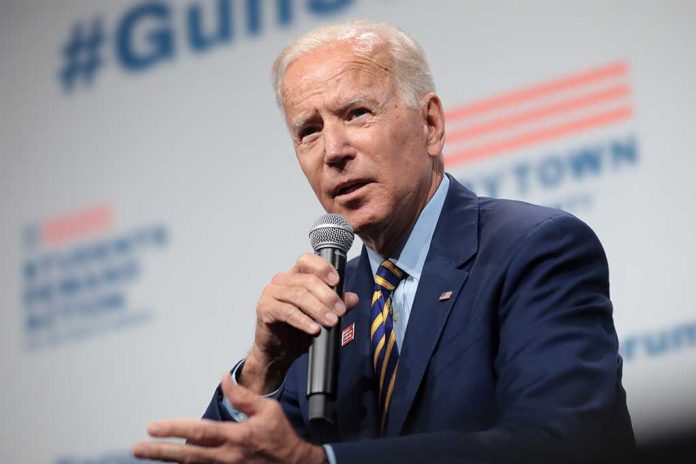
Biden’s latest presidential pardons are stirring heated discussions about ethics and executive power, leaving many to question how these actions will shape the future of the presidency.
Key Takeaways
- President Biden issued preemptive pardons to figures like Anthony Fauci and Mark Milley, aiming to shield them from potential retribution from Donald Trump’s incoming administration.
- Concerns over the potential for these pardons to weaken public trust and challenge the frameworks of legal accountability are growing.
- These pardons may increase recipients’ obligations to testify, as they lose the ability to invoke Fifth Amendment rights against self-incrimination.
- Biden’s pardons largely concentrated on federal crimes, not extending to state offenses.
- The actions spark debate about the potential misuse of presidential power akin to historical abuses.
Biden’s Controversial Pardons
President Joe Biden has granted preemptive pardons to several high-profile figures, including Anthony Fauci and Mark Milley, just before Donald Trump assumed office. The pardons have sparked intense discussions and drawn criticism as potentially indicative of misuse of executive power. Critics view this move as one echoing past instances where presidential pardons have been perceived as shielding partisan allies from accountability and undermining traditional checks and balances.
The pardons are positioned as protective measures against possible politically motivated prosecutions from the incoming Trump administration, which has been rumored to maintain an enemies list targeting Biden’s political opposition. President Biden has clarified that these pardons do not indicate guilt and serve purely as a precautionary measure.
Ethical Concerns and Legal Implications
Biden has pardoned individuals primarily associated with his administration and allies, including those tied to the Jan. 6 committee. This act has resulted in backlash, including some recipients claiming they neither needed nor requested a pardon. The Supreme Court’s precedence on the need to accept pardons remains inconsistent, leaving this aspect legally ambiguous.
“I believe in the rule of law, and I am optimistic that the strength of our legal institutions will ultimately prevail over politics. But these are exceptional circumstances, and I cannot in good conscience do nothing.” – Biden
There are claims that the Justice Department may view acceptance of a pardon as an admission of guilt, raising further questions about the underlying motives and ethics guiding this decision. The legal nuances surrounding these pardons have led to speculation that this trend could set a problematic precedent.
Broader Implications for the Future
The usage of presidential pardons has historical roots designed to encourage mercy and rehabilitation. However, this latest series of pardons from Biden underlines the complex interplay between executive power and potential overreach. The action of extending clemency predominantly on federal charges leaves room for criticism and concerns over its broader social and legal implications.
“These public servants have served our nation with honor and distinction and do not deserve to be the targets of unjustified and politically motivated prosecutions.” – Biden
Biden’s controversial pardons pose significant questions for future administrations regarding the ethical boundaries and scope of presidential power. As the rhetoric around potential prosecutorial abuse continues, these issues underscore the ongoing debate about maintaining the delicate balance of executive authority and accountability in governance.
Sources:
- Biden pardons Fauci and Milley in an effort to guard against potential ‘revenge’ by Trump
- Biden issues preemptive pardons for Fauci, Milley, Jan. 6 Committee and others – POLITICO
- NEW: Biden Pardons Fauci, Milley, Cheney, Others in Shocking Abuse of Presidential Power – RedState







